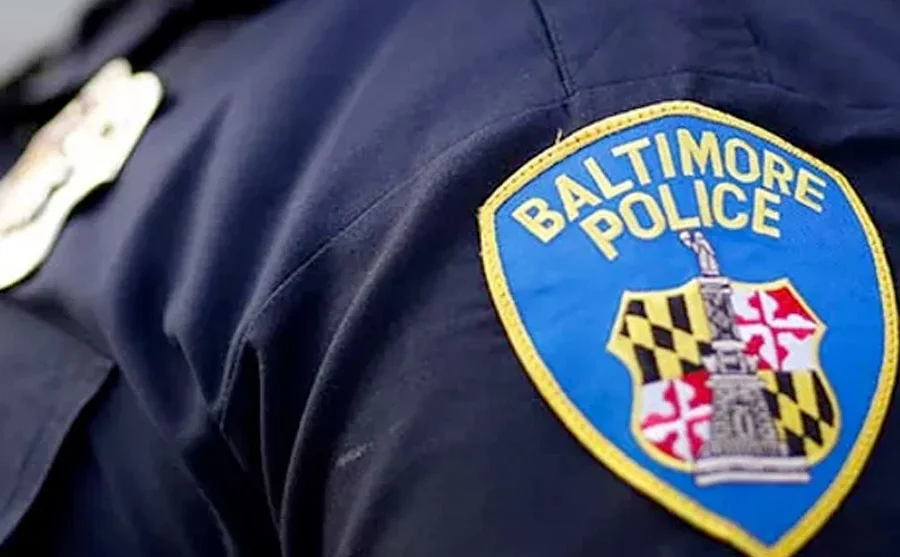A Baltimore judge deemed the city liable Wednesday to the family of a teenager who was forced into a police van near his West Baltimore home in 2009, interrogated about illegal drug activity and dropped off in the rain later that day near Patapsco Valley State Park in Howard County without his shoes, socks and cellphone.
The three officers were acting within the scope of their police employment in their mistreatment of 15-year-old Michael B. Johnson Jr. on May 4, 2009, Baltimore City Circuit Judge Jeffrey M. Geller said in ruling that the city must pay the outstanding $281,000 judgment plus interest to Johnson’s family.
In his decision, Geller rejected the city’s argument that it should not be held liable because the officers were acting without the police department’s authorization when they used force against the youngster, interrogated him and left him barefoot, phoneless and far from home.
The judge said these were misbehaving but not renegade Baltimore Police Department officers.
“Although the officers engaged in some significant misconduct, the overarching thrust of their activities was in furtherance of BPD’s ‘business’ of law enforcement,” Geller wrote in a memorandum opinion. “The officers were on duty, traveling in a departmental vehicle, responding to a call for service, seeking information related to drug crimes, and believed they were acting in such a way as to generate respect for the department.”
The officers “were tasked with investigating, arresting, and charging individuals with gun and drug crimes,” Geller added. “Such duties are clearly commonly done by police department employees.”
Johnson, having been stranded by the Baltimore police officers, called 911 from a gas station pay phone, a responding Howard County police officer testified later at the civil trial against the city.
Johnson died in June 2018 of unrelated causes. His family has continued to defend the civil judgment on behalf of his estate.
Latoya A. Francis-Williams, an attorney for the family, said Thursday that “the city has really thumbed their nose at the system and the law” by arguing that its police officers were acting outside the scope of their employment in seizing and questioning of Johnson.
“the city has really thumbed their nose at the system and the law”We believe the city’s legal stance is disingenuous (and) adds insult to injury,” said Francis-Williams, of The Law Offices of A. Dwight Pettit P.A. in Baltimore. “The city’s initial objective of creating a chilling effect cannot stand and will not stand.” Baltimore Solicitor James L. Shea, the city’s chief attorney, said Thursday that the city is reviewing its options following Geller’s decision. The three Baltimore officers were charged with kidnapping, a felony, and misconduct in office, a misdemeanor. Then-Baltimore City State’s Attorney Gregg Bernstein, who prosecuted the case himself, obtained misdemeanor convictions against officers Milton G. Smith III and Tyrone Francis in May 2011. The third officer, Greg Hellen, was acquitted. The city has maintained that Baltimore could not be held liable for the officers’ actions. In August 2012, the city’s Board of Estimates rejected a proposed $150,000 settlement, saying the officers had acted outside the scope of their employment. A Baltimore City Circuit Court jury in 2013 found the officers acted with malice and awarded damages of $500,000, including $465,000 in compensatory and $35,000 in punitive damages. Judge W. Michel Pierson subsequently cut the award to $335,000 after reducing compensatory damages to $300,000. The total award was further reduced to $281,000 on appeal. The total amount now — including interest of 10% annually since 2013 — is $500,410.96, according to the family’s counsel. The question has remained whether the award would be owed by the officers or the city. In holding the city liable, Geller cited the Maryland high court’s ruling last year that officers on BPD’s disgraced Gun Trace Task Force acted within the scope of their employment when they planted evidence even though that illegal act was not authorized by the department. “Although the department clearly did not authorize the officers’ misconduct, and indeed their conduct violated the department’s express orders … the officers’ actions were incidental to the performance of the duties that the department entrusted to them, and those actions did not render the officers’ overall conduct outside the scope of employment,” the Court of Appeals ruled in BPD v. Potts. Likewise, the three officers’ treatment of Johnson was “incidental to actions authorized by the BPD,” Geller wrote. “Clearly, the officers’ misconduct in the manner in which they treated Mr. Johnson was outside BPD’s enterprise,” the judge wrote. “However, the officers were also engaging in police work and were not acting for their own personal benefit,” Geller added. “Although the manner in which they operated may have been outside the norms expected of police, the employer would have reason to expect that officers would be investigating criminal activity, interviewing potential witnesses and/or suspects of criminal activity, and seeking to increase respect of the police within the city.” The case is docketed in Baltimore City Circuit Court as Michael Maurice Johnson, representative of the estate of Michael Brian Johnson Jr. v. Mayor and City Council of Baltimore et al., No. 24-C-20-000475.

